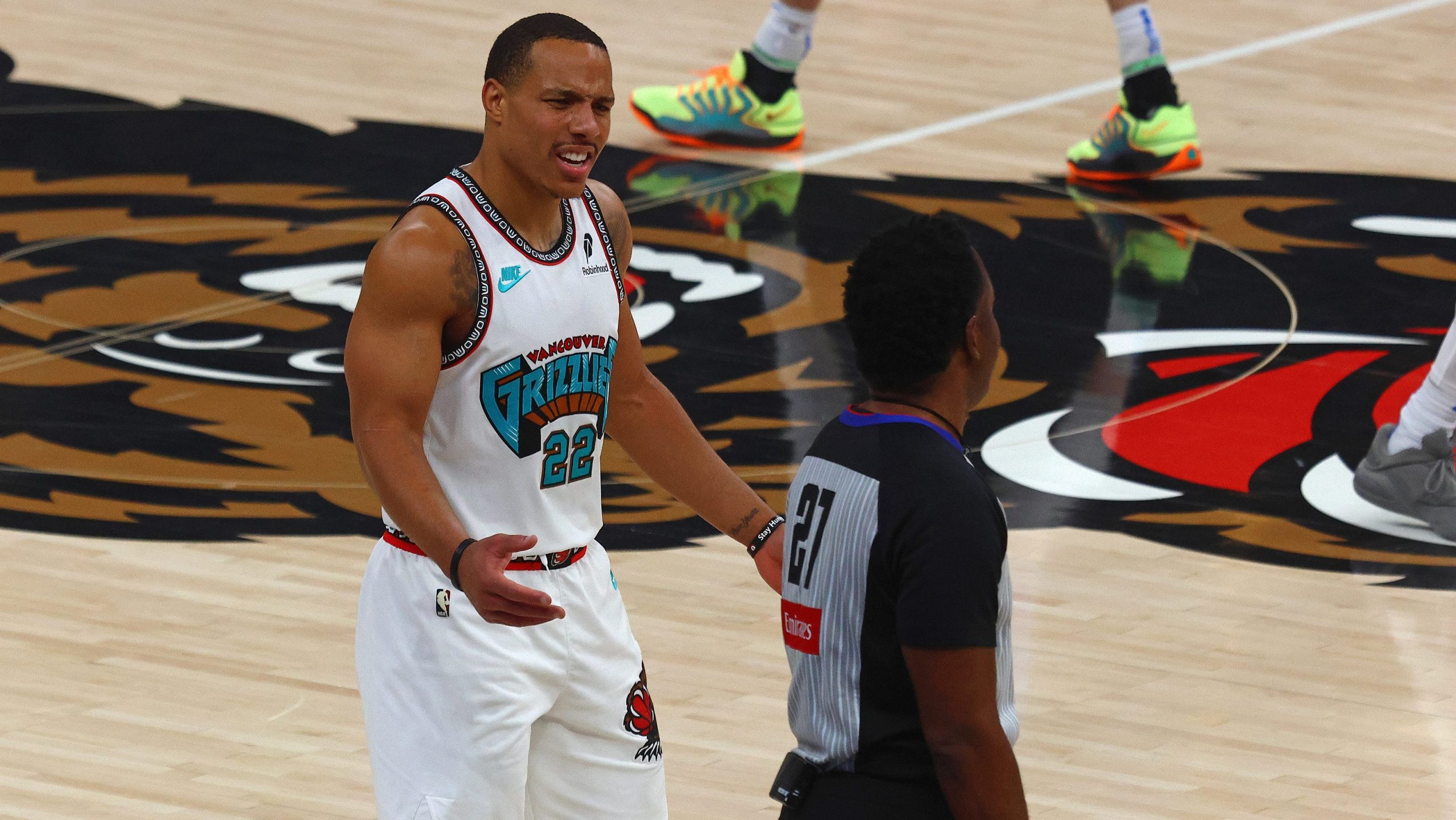The 2020 NBA Draft remains a pivotal moment for many franchises, and for the Boston Celtics, a particular decision continues to spark debate among analysts and fans alike: the trade of promising guard Desmond Bane.
On that draft night, the Celtics initially held the 30th overall pick, which they used to select Bane. However, in a swift move, Boston traded Bane to the Memphis Grizzlies as part of a multi-team deal, ultimately acquiring future draft capital. Bane has since flourished in Memphis, evolving into a potent offensive weapon and a key component of their success.
This controversial transaction recently became the focal point of discussion on NESN’s “Hold My Banner” podcast, where hosts Adam Pellerin and Ountae Campbell meticulously dissected whether the Celtics committed a significant misjudgment by letting Bane go. Their conversation highlighted the ongoing “what if” scenario that often accompanies draft-night decisions.
A central argument revolved around Bane’s immediate and consistent impact. His high-level three-point shooting, robust defense, and improved playmaking could have seamlessly integrated into the Celtics’ roster, addressing critical needs that have, at times, surfaced in subsequent seasons. His growth into a legitimate two-way player underscores the perceived missed opportunity.
Looking ahead to the projected challenges of the 2025-26 NBA season, the hypothetical presence of Desmond Bane in Boston’s lineup becomes even more intriguing. His skill set offers versatility and depth, particularly given the ever-increasing parity and competitive landscape within the league, where every incremental talent advantage can prove decisive.
Had Bane remained a Celtic, it’s plausible his development could have provided a cost-controlled asset and another dynamic scorer, potentially alleviating pressure on the team’s primary stars and offering more strategic flexibility in roster construction. Such depth is invaluable for sustained championship contention in the demanding NBA.
The podcast discussion ultimately serves as a compelling retrospective on the complexities of NBA team building and the long-term ramifications of draft-day choices. While hindsight is always 20/20, the trajectory of Desmond Bane’s career with the Memphis Grizzlies undoubtedly fuels the enduring question of whether Boston’s trade was a strategic misstep or an unavoidable part of their roster evolution.
The debate underscores the delicate balance between immediate team needs and long-term player development, a challenge every NBA front office faces. The Celtics’ decision regarding Desmond Bane will likely remain a topic of discussion for years to come among Boston basketball fans.






Leave a Reply